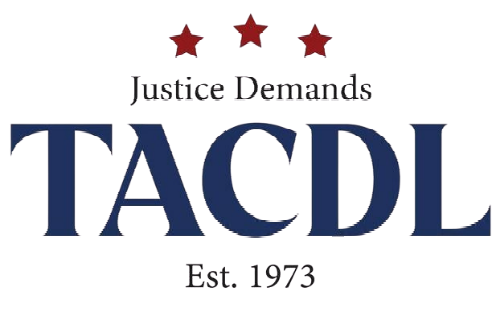Criminal Defense Attorney in Cleveland, TN
Aggressive Criminal Defense Representation in Cleveland, TN
When you're facing criminal charges in Cleveland, TN, everything is on the line — your freedom, your record, your reputation. You need more than just a lawyer. You need an aggressive criminal defense attorney who knows how to fight back and protect your future.
At The Law Office of Sheridan Randolph, we bring a fierce courtroom presence, precise legal strategy, and personal attention to every case. Whether you’ve been arrested for a misdemeanor, felony, or DUI, we’ll stand beside you — prepared, determined, and ready to win.
What to Do If You’ve Been Arrested in Cleveland, TN
Getting arrested can feel like your world is spinning out of control. But one of the most important things you can do is stay calm — and know your rights.
Here’s what you need to remember:
- You Have the Right to Remain Silent: Anything you say can be used against you. Don’t try to explain or argue your way out — ask for your attorney.
- You Have the Right to a Lawyer: Never speak to law enforcement or prosecutors without a criminal defense attorney present.
- You Don’t Have to Consent to a Search: If police ask to search your vehicle, home, or belongings, you can legally say no unless they have a warrant.
- Contact an Attorney Immediately: The sooner we get involved, the more we can do to protect your rights, examine the evidence, and guide your next steps.
If you’ve been arrested in Cleveland, TN — or think you might be — call us immediately. Early legal action can make all the difference.
What to Expect After a Criminal Charge in Tennessee
Being arrested or charged with a crime can be confusing and intimidating — especially if it’s your first time dealing with the legal system. In Tennessee, the criminal process typically begins with an arrest or summons, followed by arraignment, bond hearings, pre-trial motions, and potentially a trial. At every stage, the prosecution is working to build a case against you — and without the right legal defense, your rights and future are at serious risk.
Having a knowledgeable criminal defense lawyer by your side from the start ensures that you don’t make costly mistakes, miss critical deadlines, or unknowingly give up your legal protections.
Why You Need an Experienced Criminal Defense Lawyer in Cleveland, TN
Criminal cases aren’t just about what happened — they’re about how evidence is presented, how charges are filed, and how well your attorney understands local court procedures. That’s why it’s so important to work with a defense attorney who has deep experience in Bradley County and the surrounding Cleveland, TN area.
Sheridan Randolph brings nearly a decade of experience representing people just like you — with a deep understanding of the judges, prosecutors, and strategies that get results here in Cleveland. Whether you’re facing felony or misdemeanor charges, he builds every defense with precision, strategy, and a relentless focus on your best outcome.
Protecting Your Rights Starts Now
From the moment you're accused of a crime, your rights are on the line — and they can be violated if you don’t have someone fighting for you. Law enforcement officers may pressure you to speak, prosecutors may overcharge, and early court decisions can shape the outcome of your entire case.
Here’s what a criminal defense attorney can do for you:
- Challenge illegal searches, stops, or arrests
- Negotiate for reduced charges or alternative sentencing
- Prepare for trial with strong evidence and cross-examination strategy
- Protect your constitutional rights throughout the process
- Help you understand every option — not just the ones that benefit the state
If you’ve been charged with a crime in Cleveland, TN, don’t wait to get legal advice. The sooner we get involved, the more we can do to protect you.
Facing Charges in Cleveland, TN? Let’s Talk.
Contact Form - Criminal Defense Pages
Criminal Defense Services
Criminal Defense Services in Cleveland, TN
Drug Crime Defense
We defend clients facing charges related to possession, manufacturing, distribution, or trafficking of illegal or controlled substances. Whether it’s a small amount of marijuana or a felony-level drug charge, we’ll fight to protect your rights and future.
Defense for Domestic Violence Charges
Allegations of domestic violence can affect your reputation, job, and parental rights. We approach these sensitive cases with care, working to protect your record and resolve the matter with discretion.
Federal Charges Legal Defense
We represent clients indicted on serious federal offenses including wire fraud, healthcare fraud, and federal drug trafficking. Federal cases require a lawyer with knowledge of both state and federal court procedures.
Misdemeanor Crime Defense
Even minor offenses like disorderly conduct, trespassing, and simple assault can have long-term consequences. We take misdemeanor cases seriously, working to protect your record.
Probation Violation Representation
If you've been accused of violating probation — missing appointments, failing a drug test, or getting re-arrested — we’ll fight to minimize penalties and avoid jail time.
Property & Theft Crime Defense
Accused of burglary, shoplifting, robbery, or vandalism? Property crimes can carry both jail time and restitution penalties. We work to reduce or dismiss charges and defend your name.
Legal Defense for Sex Crime Allegations
Being accused of a sex crime can destroy your reputation, relationships, and future — even before a trial. We provide aggressive, confidential defense against charges such as sexual assault, rape, sexual battery, and other sex offenses. Our firm works to protect your rights, challenge weak evidence, and ensure you receive a fair legal process from start to finish.
Violent Crimes Defense
Charged with aggravated assault, battery, or even murder? These serious offenses carry life-changing penalties. We provide aggressive representation and a strategic defense to challenge the evidence and protect your freedom.
Defense for Weapons Crimes Charges
Weapons charges in Tennessee — such as unlawful possession of a firearm, carrying a weapon without a permit, or possession by a convicted felon — can lead to serious jail time and a permanent criminal record. We defend clients against state and federal weapons charges by challenging illegal searches, unclear intent, and procedural mistakes.
White Collar Crimes Defense
We handle cases involving embezzlement, identity theft, credit card fraud, money laundering, and more. These crimes often require detailed evidence analysis and strategic negotiation.
Legal Defense for DUI Charges
A DUI arrest in Tennessee can lead to fines, license suspension, and even jail time. We scrutinize every aspect of your traffic stop and testing procedures to seek reduced penalties or dismissal.
Why Choose Our Criminal Defense Firm in Cleveland, TN
Local Experience That Matters
We know the judges, prosecutors, and procedures in Bradley County. That insight shapes stronger defense strategies.
Relentless Courtroom Advocacy
We don’t shy away from tough cases — we build them piece by piece to challenge the prosecution and protect your future.
Straightforward, Transparent Communication
No confusing legal jargon. No surprises. Just honest answers and clear guidance from day one.
Fast, Responsive Support
We respond quickly to your questions so you’re never left in the dark during one of the most stressful times of your life.
Don’t Face Criminal Charges Alone — Get a Consultation Today
Facing criminal charges can be overwhelming, but you don’t have to go through it alone. Schedule your free consultation today to speak with a Cleveland, TN criminal defense attorney who will listen, guide you, and fight to protect your future.
Or Call Now
Criminal Law FAQs
Have questions about your charges or legal rights? You’re not alone.
We’ve answered some of the most common — and most important — questions people ask when they’re facing criminal charges in Cleveland, TN. If you need more personalized guidance, contact us today for a consultation.
What should I do if I’ve been arrested in Cleveland, TN?
Stay calm, do not resist, and immediately exercise your right to remain silent. Politely tell law enforcement that you will not answer questions without your attorney present. Then, contact a criminal defense lawyer as soon as possible.
Can I be charged even if I didn’t commit the crime?
Yes. Law enforcement can file charges based on accusations, circumstantial evidence, or mistaken identity. It’s critical to have a defense attorney who can investigate the facts, challenge evidence, and protect your rights.
Do I really need a lawyer for a misdemeanor?
Absolutely. Misdemeanors in Tennessee can still result in jail time, fines, and a permanent criminal record. Having a defense lawyer may help you avoid harsh penalties, protect your record, or even get charges dismissed.
How much does a criminal defense attorney cost in Cleveland, TN?
Costs vary based on the type of charge and complexity of the case. At The Law Office of Sheridan Randolph, we offer clear, upfront pricing and will explain all costs before you commit — no surprises, no hidden fees.
Can a criminal charge be dropped or dismissed?
Yes, in some cases. Charges may be dismissed due to lack of evidence, constitutional violations, or successful negotiations. An experienced criminal defense attorney will explore every legal avenue to reduce or eliminate your charges.
Will I have to go to court for a criminal charge?
Many criminal cases in Tennessee involve court appearances — but not all result in trial. Your attorney may be able to resolve the case through negotiation or pre-trial motions. If court is necessary, we’ll prepare you and represent you at every stage.



